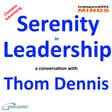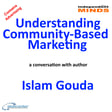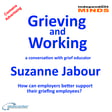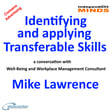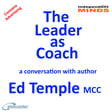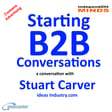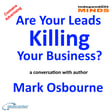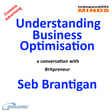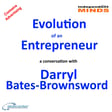
The Intentional Leadership Inventory– a conversation with Dene Stuart
Dene Stuart is the founder of the Exceptional Leadership Academy, and the creator of the Intentional Leadership Inventory.
Looking back on his 30 years in business, firstly in management roles in corporations and then in his own businesses, Dene lamented on the numerous mistakes he had made when trying to provide leadership to his team.
After accepting that these mistakes were the result of a lack of training he embarked on his own learning journey.
In this episode of the Abeceder podcast The Independent Minds, Dene explains to host Michael Millward what he learnt on that journey and how he turned that learning into the Exceptional Leader Academy.
Dene explains that successful leaders have a leadership mindset and act with intention, and that this resulted in him creating the Intentional Leadership Inventory.
More information about Dene Stuart and Michael Millward is available at abeceder.
Audience Offers
The Independent Minds is made on Zencastr, because as the all-in-one podcasting platform, Zencastr really does make creating content so easy.
If you would like to try podcasting using Zencastr visit zencastr.com/pricing and use our offer code ABECEDER.
Travel
With discounted membership of the Ultimate Travel Club, you can travel anywhere else at trade prices on flights, hotels, trains, and many more travel related purchases.
Fit For Work Look after your health and you will be fit for work.
No point in being in a great job if you are in poor health. That is why we recommend The Annual Health Test from York Test; a 39-health marker Annual Health Test conducted by an experienced phlebotomist with hospital standard tests carried out in a UKAS-accredited and CQC-compliant laboratory.
A secure Personal Wellness Hub provides easy-to-understand results and lifestyle guidance
Visit York Test and use this discount code MIND25.
Three the network Visit Three for information about business and personal telecom solutions from Three, and the special offers available when you quote my referral code WPFNUQHU.
Being a Guest
We recommend the podcasting guest training programmes available from Work Place Learning Centre.
We use Matchmaker.fm to connect with potential guests If you are a podcaster looking for interesting guests or if you have something interesting to say Matchmaker.fm is where great guests and great hosts are matched and great podcasts are hatched. Use our offer code MILW10 for a discount on membership.
We appreciate every like, download, and subscriber.
Thank you for listening.
